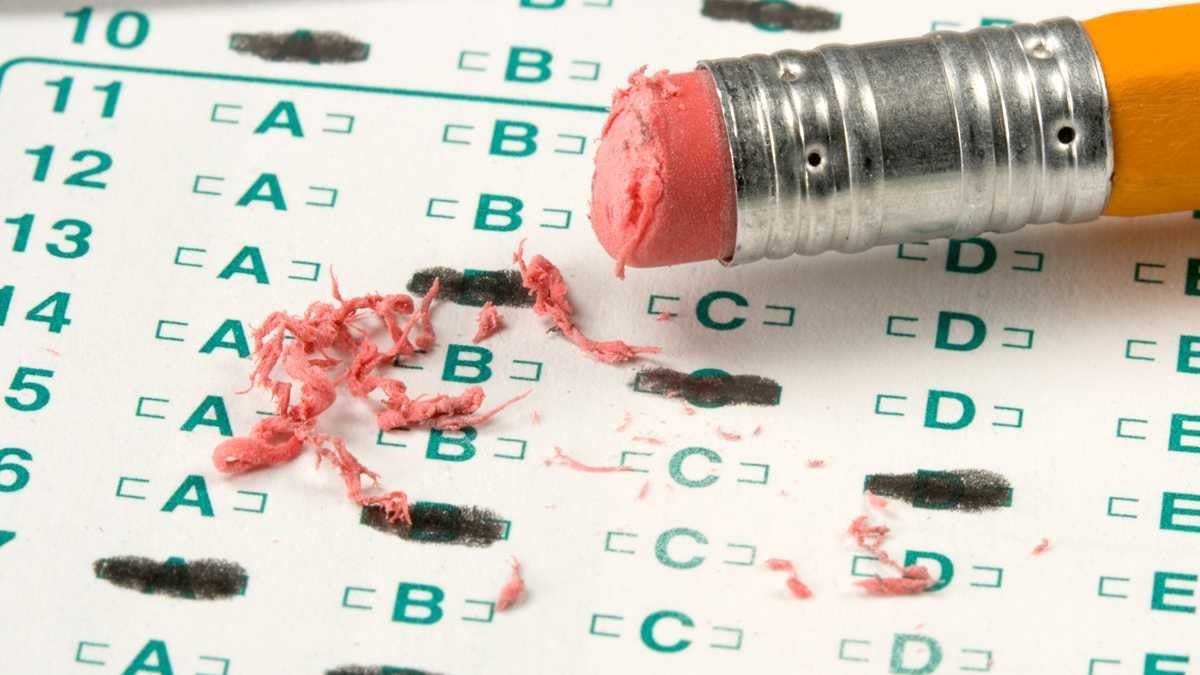SAT to replace Smarter Balanced as Delaware’s 11th grade standardized test

(Photo via ShutterStock)
Delaware high schools students won’t be the only ones sweating out the SAT this year. Now schools and districts will be on the hook, too.
State officials announced Wednesday that Delaware will use the SAT as its 11th-grade accountability test starting this spring. The SAT will replace Smarter Balanced, a Common-Core-aligned test that was introduced last year and faced heavy criticism.
The move won’t change much for Delaware students. The state already administers the SAT to every Delaware junior, an initiative started in 2011 to help boost college-going rates. In the past, though, the state used a separate test to gauge whether high schoolers were proficient in math and reading. Those scores helped the state evaluate whether schools and districts were providing a quality education. The SAT, meanwhile, was simply a test students took to apply for college.
Now, the SAT will serve both functions. It will be a college entrance exam and an accountability measure for the state.
Delaware will continue to use Smarter Balance as its accountability test for Grades 3-8.
By switching to the SAT, Delaware officials will likely accomplish a couple things. First, removing Smarter Balanced will lessen the testing load for juniors, many of whom take AP exams and the ACT in addition to the SAT. It also figures to boost the state’s testing participation rates.
Last year, about 10 percent of the state’s juniors didn’t take Smarter Balanced, a test that had no consequences or rewards for individual students. Students have an incentive, however, to take the SAT because scores on the test help determine admission at many colleges.
“This is a smart solution that ensures our educators, students and families get the information while mitigating the over-testing concern many share,” Delaware Secretary of Education Steven Godowsky said.
Smarter Balanced was designed to measure how well students understand the Common Core standards. Delaware adopted the standards in 2010. The SAT is now designed to do the same.
Starting this spring, the SAT will introduce a new format more closely aligned to Common Core. It will also reintroduce the 1600-point grading scale and eliminate penalties for guessing incorrectly.
The architect of the new test is David Coleman, current head of the College Board and a driving force behind the Common Core.
Coleman’s push to reform the SAT comes amid challenges to its once-dominant position in the college testing marketplace. A growing number of colleges either don’t require that students take the SAT or don’t use it at all when making admissions decisions. Meanwhile, the ACT has overtaken the SAT as the most popular college entrance exam.
The SAT is expected to retain its prominence, however, in states that use the test for accountability purposes. Delaware joins Maine, Michigan, New Hampshire, and Connecticut as states that will use the SAT for school and district accountability this spring.
The Delaware Department of Education announced last April that local universities would use student scores on Smarter Balanced to determine if incoming freshmen could skip remedial classes.
It’s unclear what will happen to that arrangement now that the state has stopped using Smarter Balanced for 11th graders. A spokesperson said via email that the Department of Education will “engage with our colleges and universities regarding such agreements for the SAT.”
All states are required to test students at least once in high school using some sort of standardized examination. Delaware tests students in 11th grade. Freshmen, sophomores and seniors do not take statewide accountability assessments.
WHYY is your source for fact-based, in-depth journalism and information. As a nonprofit organization, we rely on financial support from readers like you. Please give today.





